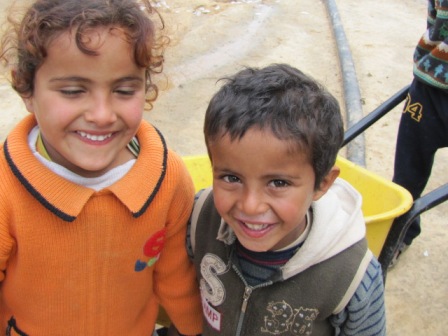Category: Journals
-
Inspired by Egypt, young Palestinians lead movement to end division
Vittorio Arrigoni Translation by Daniela Loffreda. The mighty flow of blood and hope from Tunisia, Egypt, Yemen, Bahrein, Algeria and Lybia has also washed over young Palestinian minds in Gaza. What started as a stream has become a torrent and will soon spill its banks. Palestine’s 25 January will be 15 March. Palestinians are working…
-
Three killed in Gaza buffer zone
22 February 2011 | ISM Gaza Ashraf Abdellatif Iqtifan was born in Gaza City in 1980. He grew up surrounded by five brothers, two sisters, and everyday violence. When Ashraf was eleven years old, his 14-year-old brother Rami, who on his slightly yellowed photo smiles cheekily and brightly into the camera, threw a stone at an…
-
“I only have you to count on.”
24 February 2011 | Vera Macht, ISM Gaza “I only have you to count on. From now on, my children depend on you.” This was the desperate call of a man who sees no way out for himself and his children, and we ISM members who came to his phone call, received it in helpless silence.…

